Case 16
- Contextualising Communism and Marxism
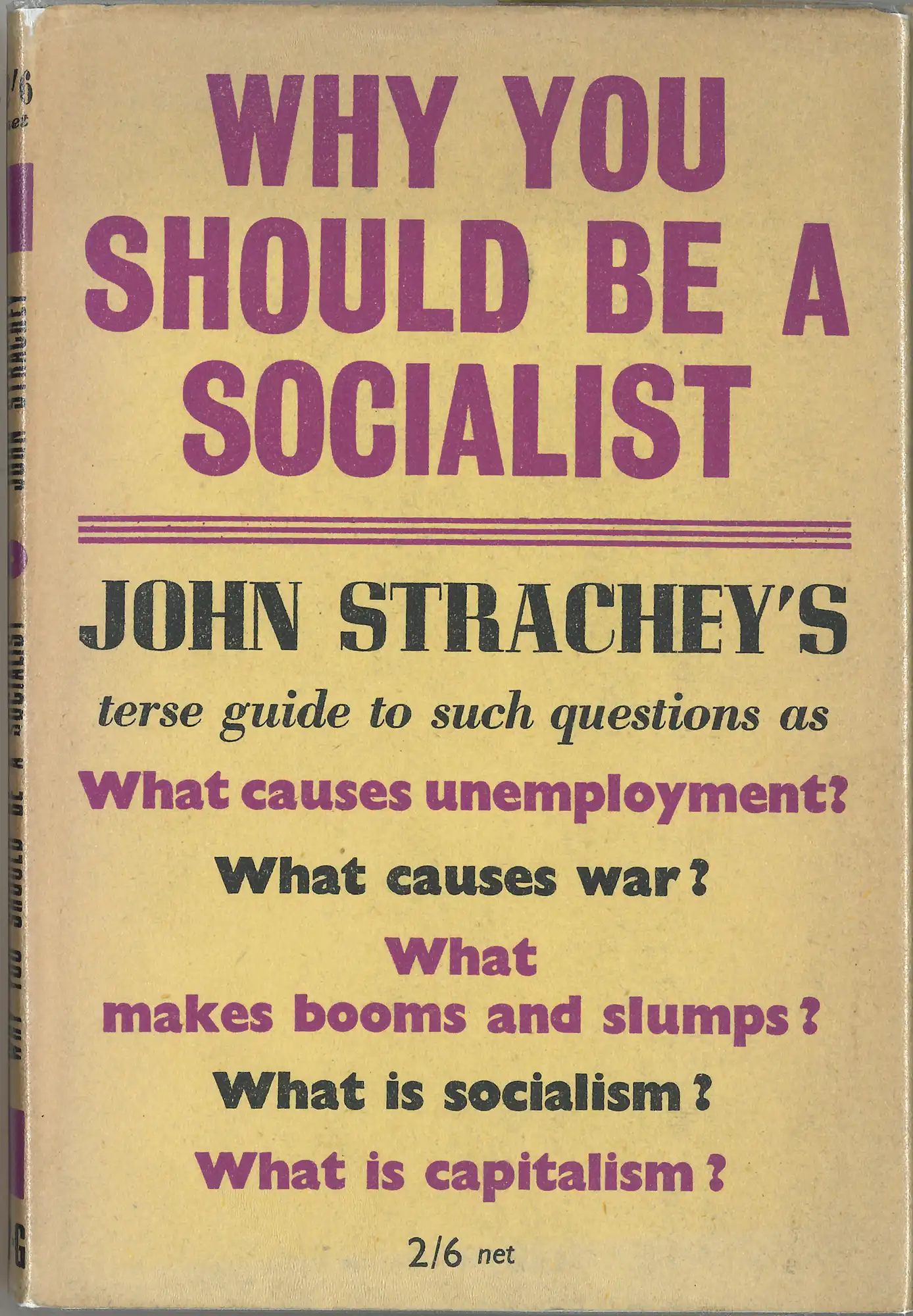
John Strachey, Why you should be a socialist. 2nd ed. (1944). LBC 335 STR
Part of the mission of the Left Book Club was to provide an education in the basic precepts of socialist and Marxist theory. The works of the great populariser and Communist Party ‘fellow traveller’, John Strachey, were very widely disseminated and studied in the hundreds of LBC groups around the UK and the world. Strachey’s biographer, Hugh Thomas, wrote that his books were, ‘immensely influential. They could be read by people unable to cope with Marx himself. Well-intentioned, middle-class women could read them, as one of them said later, “under the hair dryer” – and appreciate their good writing.’ Why you should be a socialist? sold 250,000 copies in its first year of publication. A second edition was published in 1945 and it was serialised in the Left News in 1945. With total sales of over a million copies it became, ‘in effect, Labour’s ideological manifesto in the 1945 election’, according to Paul Foot.
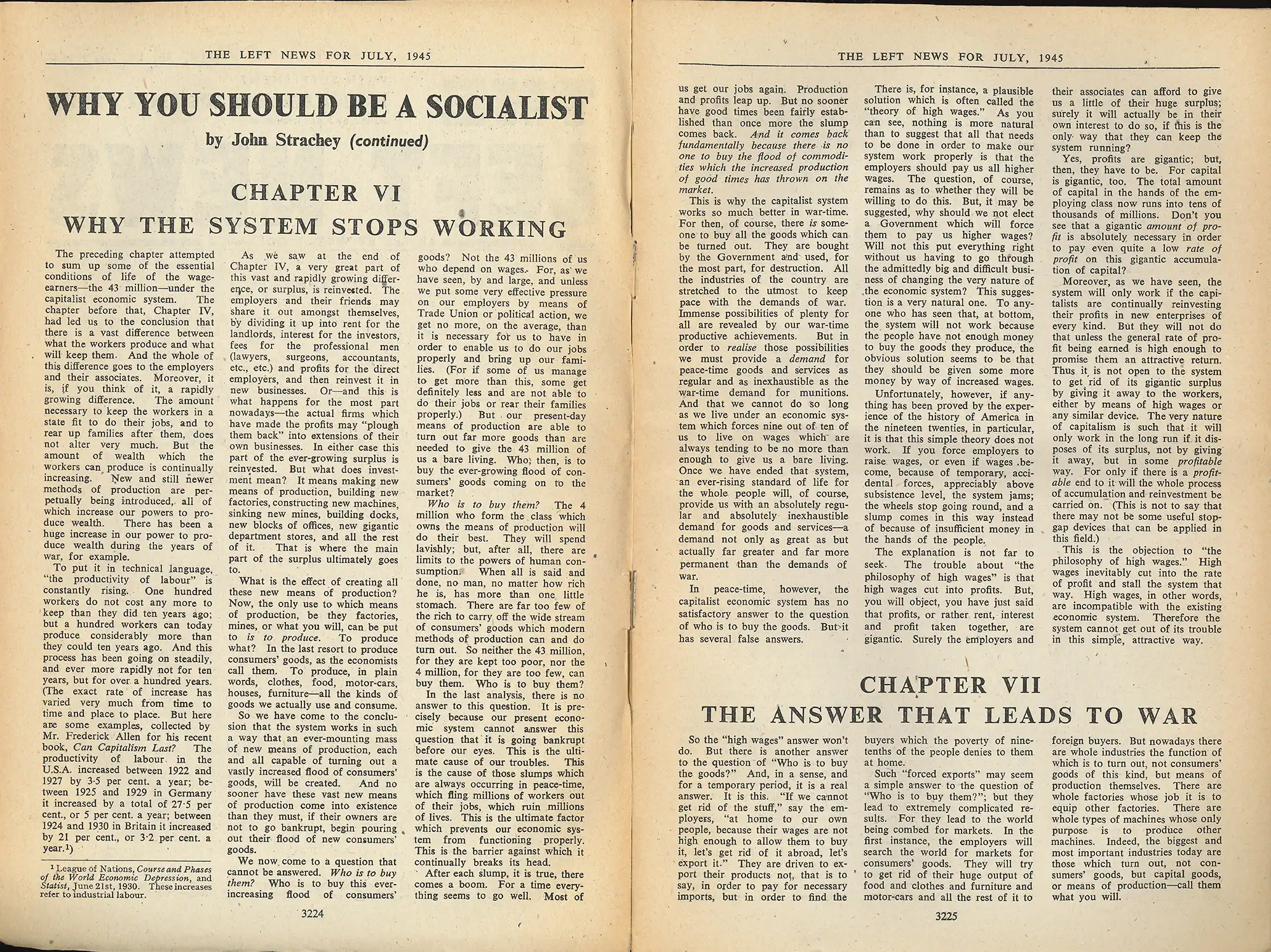
The Left News, No. 109 (July 1945)
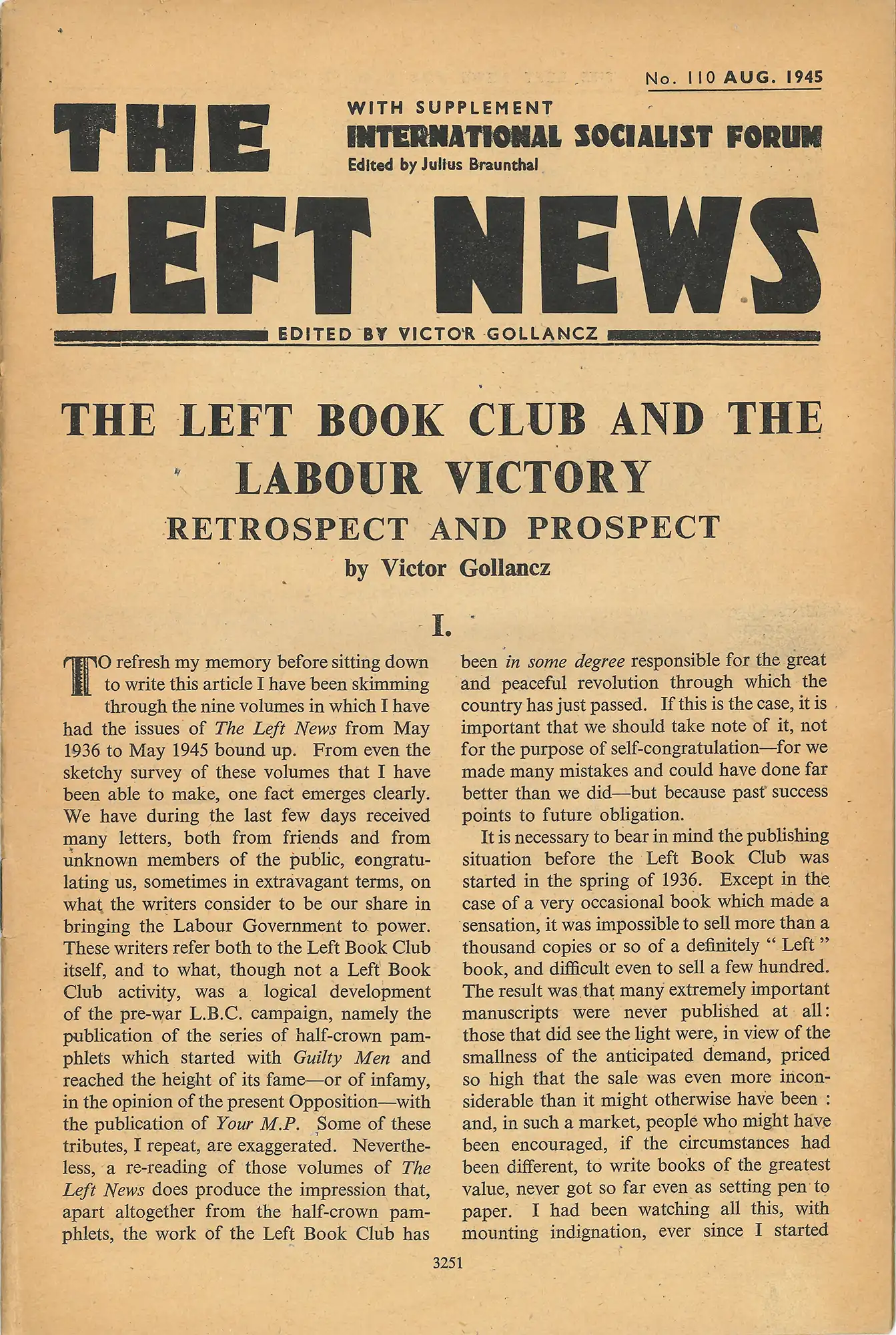
The Left News, No. 110 (August 1945)
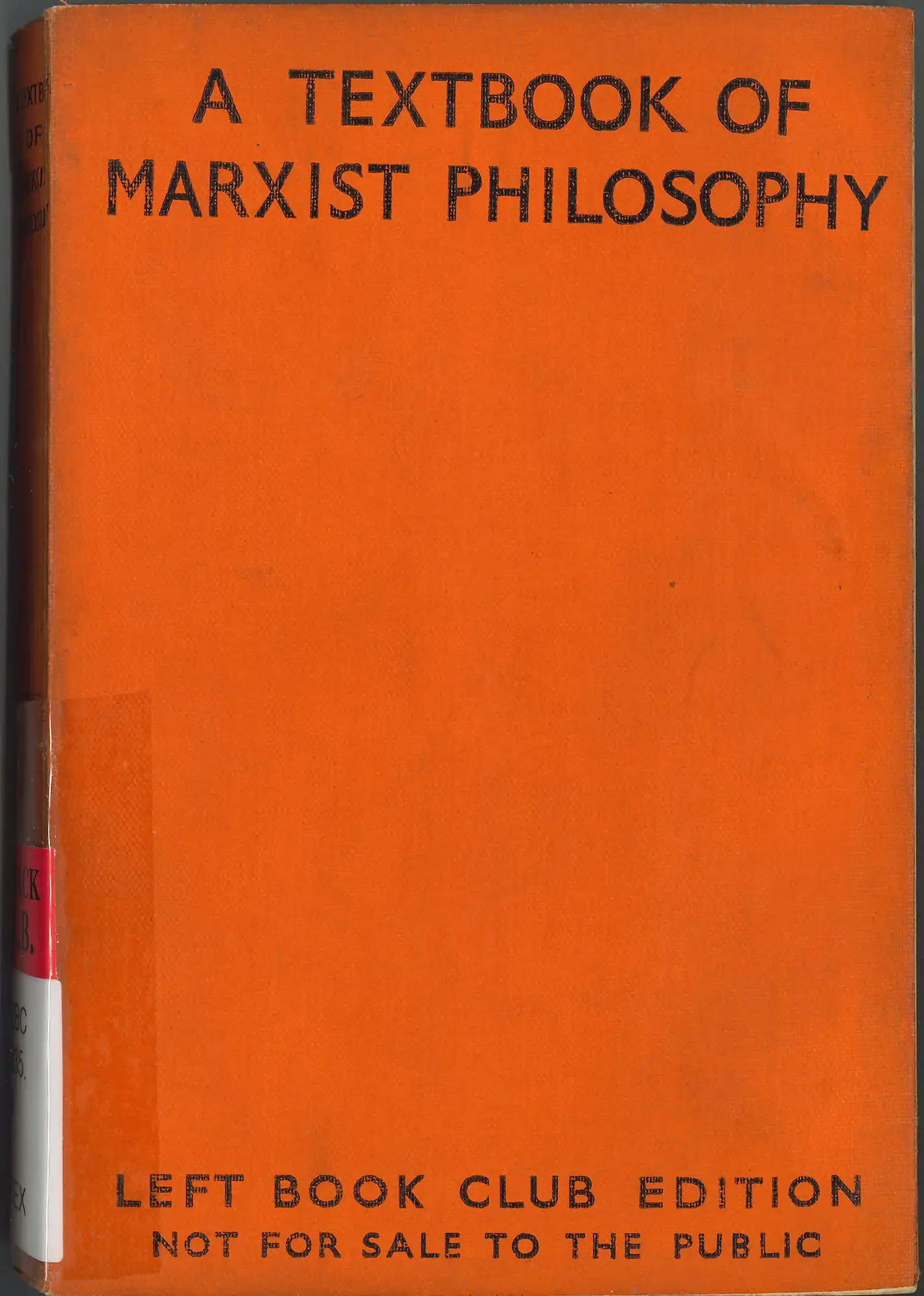
John Lewis (Editor), A textbook of Marxist philosophy. (1937). LBC 335.4 TEX
Dr. John Lewis (1889-1976), a former Presbyterian and Unitarian minister, was appointed by Gollancz to organise the national network of LBC groups in late 1936. Inspired by the October Revolution, Lewis had studied Russian and philosophy, earning himself a doctorate from Birmingham University. His Marxism was of the orthodox Marxist-Leninist variety, and he presents here an edited course of study in Party-line ‘Marxist philosophy’ as prepared by the Leningrad Institute of Philosophy. Lewis is also the author of The Left Book Club: an historical record, published in 1970, the only full book-length history of the Club.
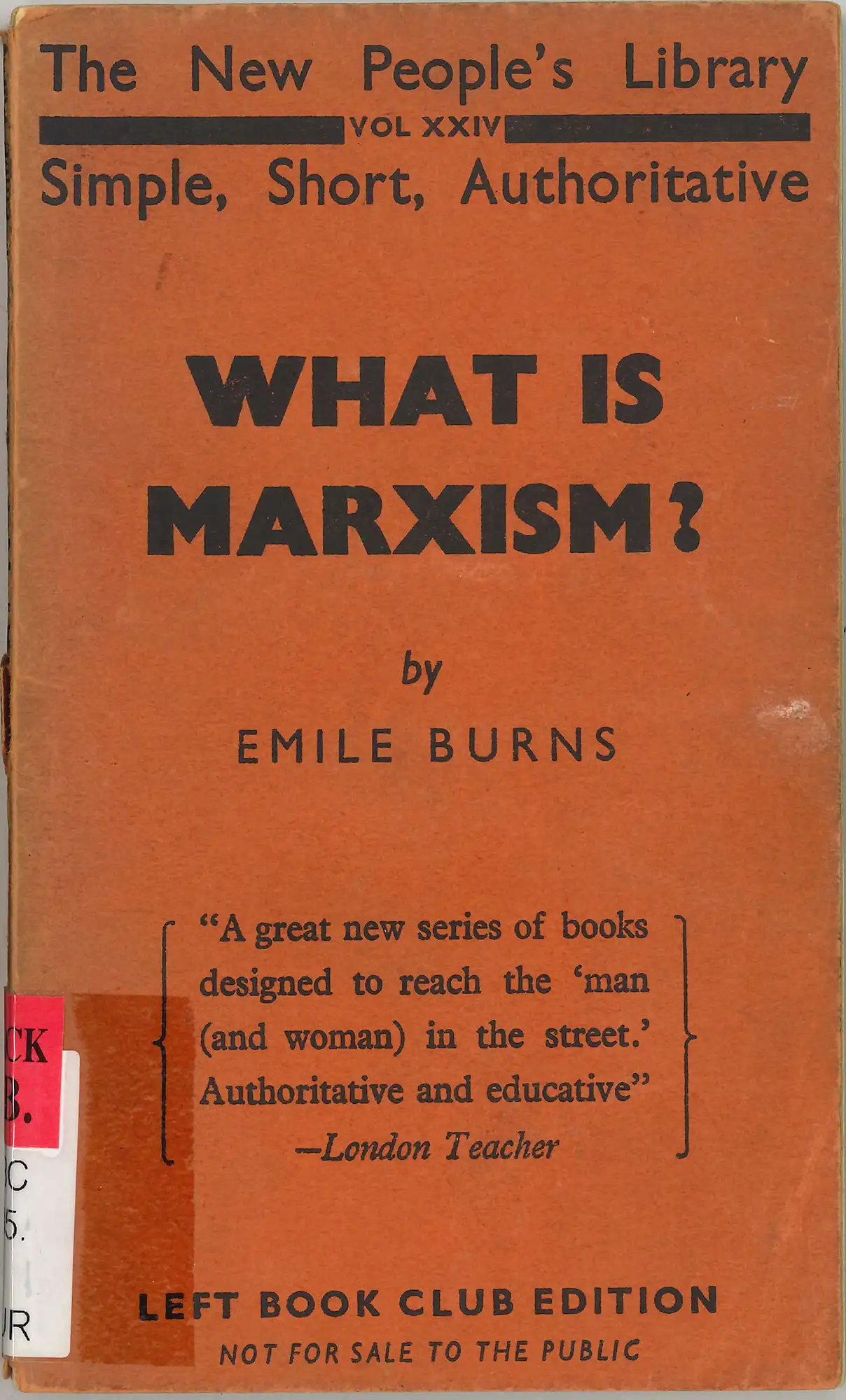
Emile Burns, What is Marxism? (1939). LBC 335.4 BUR
Emile Burns (1889-1972), initially a member of the Independent Labour Party, followed some of his fellow ILP members into the Communist Party at its foundation in 1921. Burns was secretary of the Labour Research Department, a trade union-based research department, and then held several Communist Party associated editor posts. He was a central figure in preparing the Party’s post-war political programme, the British Road to Socialism (1949). What is Marxism? is a pithy introduction to the principles of ‘scientific socialism’ (or rather the crude Stalinised Marxist-Leninism of the Party), part of The New People’s Library series. A Handbook of Marxism is a lengthy selection of extracts from Marx, Engels, Lenin and, yes … Stalin, issued by the Club in 1937 in their ‘Classics’ series. Along with the Webb’s Soviet Communism, it was unusual in being published in grey hardback format, rather than the usual red.
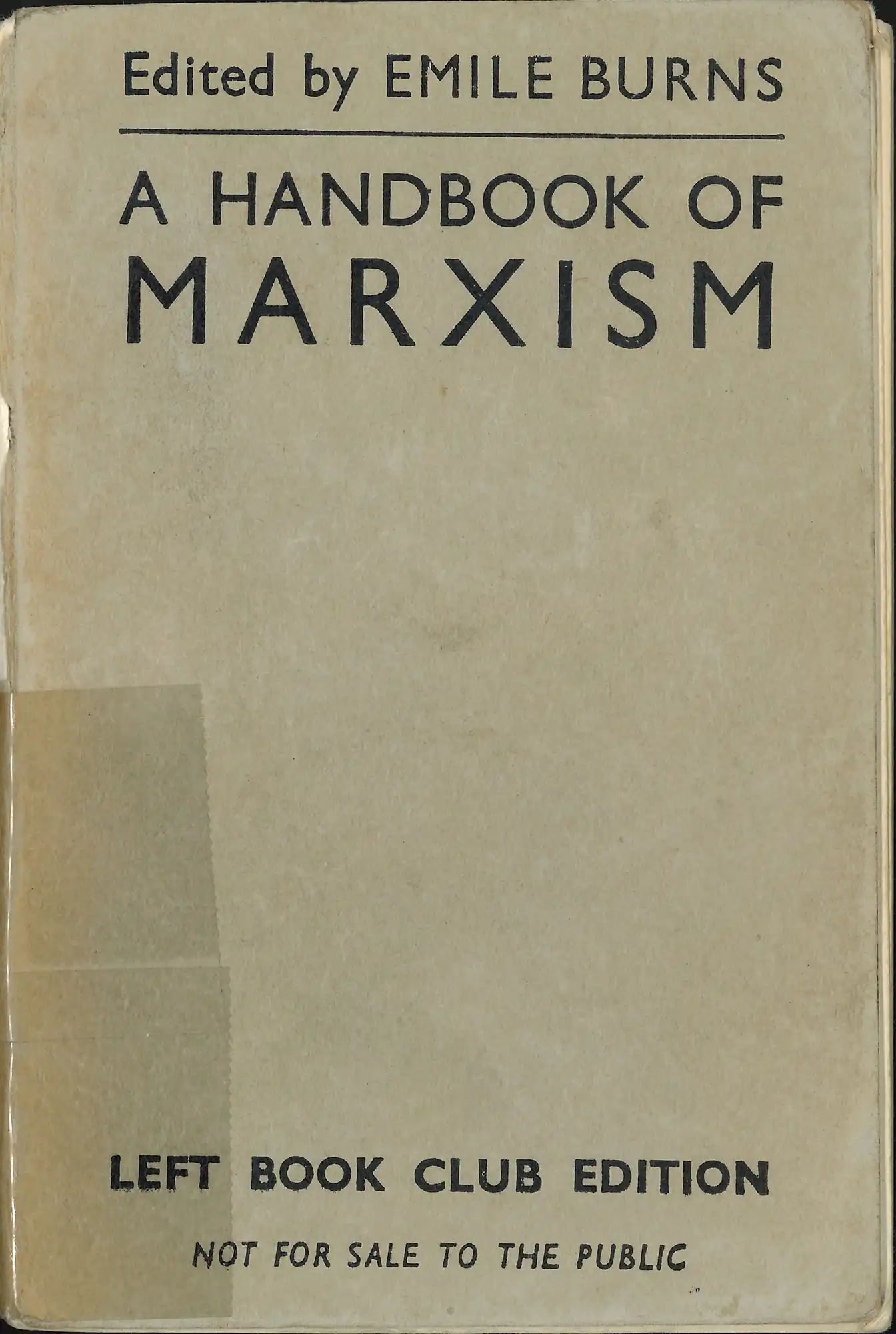
Emile Burns (Editor), A handbook of Marxism. (1936) LBC 335.4 BUR
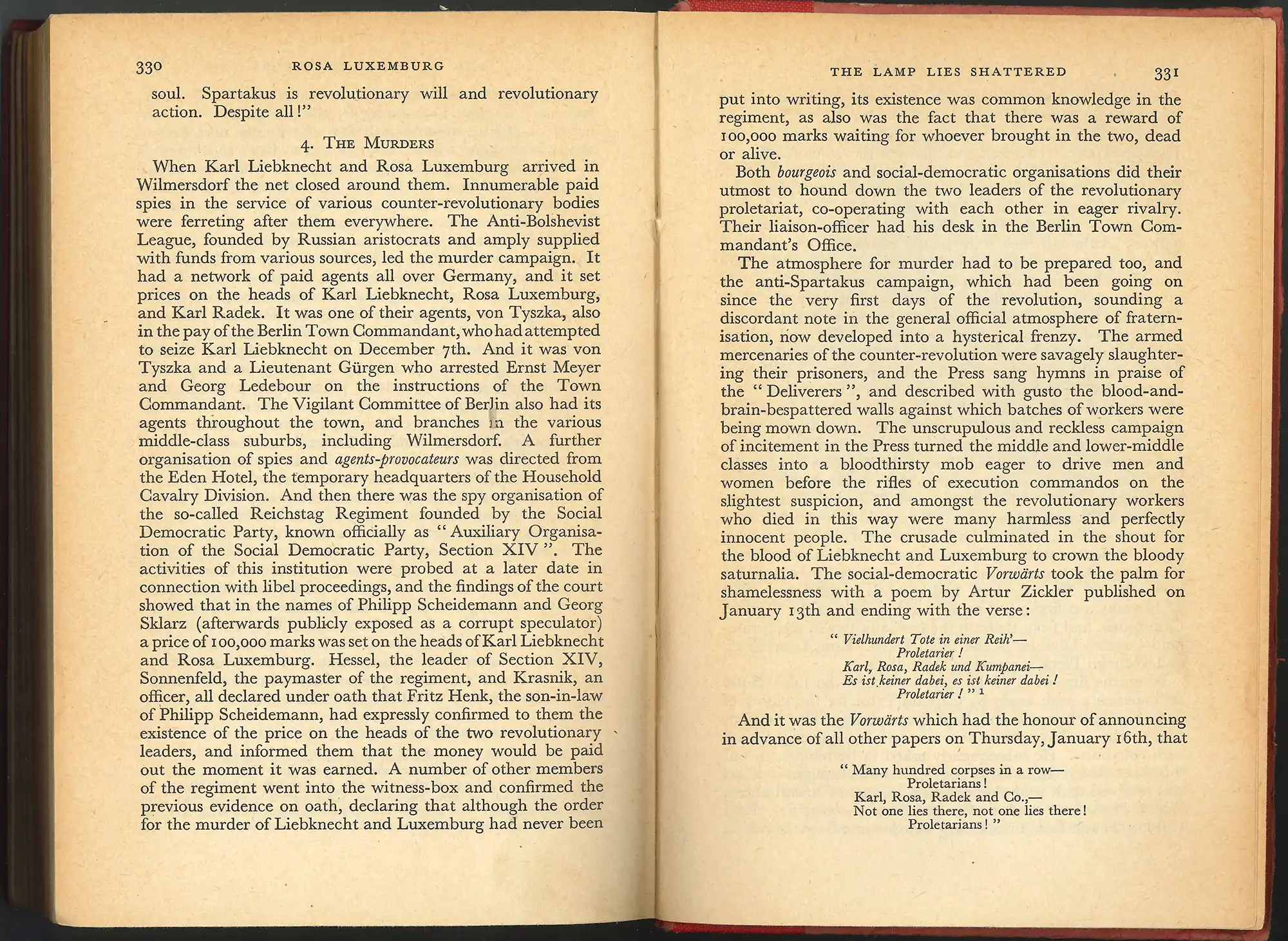
Paul Frölich, Rosa Luxemburg. (Trans. Edward Fitzgerald.) (1940). LBC 335.43092 LUX (FRO)
The publication of Paul Frölich’s biography of Rosa Luxemburg in 1940 showed a possible change in attitude towards the CPGB on the part of Gollancz. Frölich (1884-1953) was a founder of the Kommunistische Partei Deutschlands and its newspaper, Die Rote Fahne (The Red Flag). He was expelled from the party in 1928, joining the KPD (Opposition). Rosa Luxemburg was a towering figure in the German working class movement, fighting against the Social Democratic Party of Germany’s support for World War I. She was murdered by the Freikorps in Berlin in January 1919, as they put down the Spartacist Uprising. During her lifetime she vigorously opposed the authoritarian and nationalist tendencies in the revolutionary movement that led to substitution of the party for the class, and the one-party state that eventuated in the Soviet Union. Frölich was an ally of Luxemburg. This was the first biography of her.
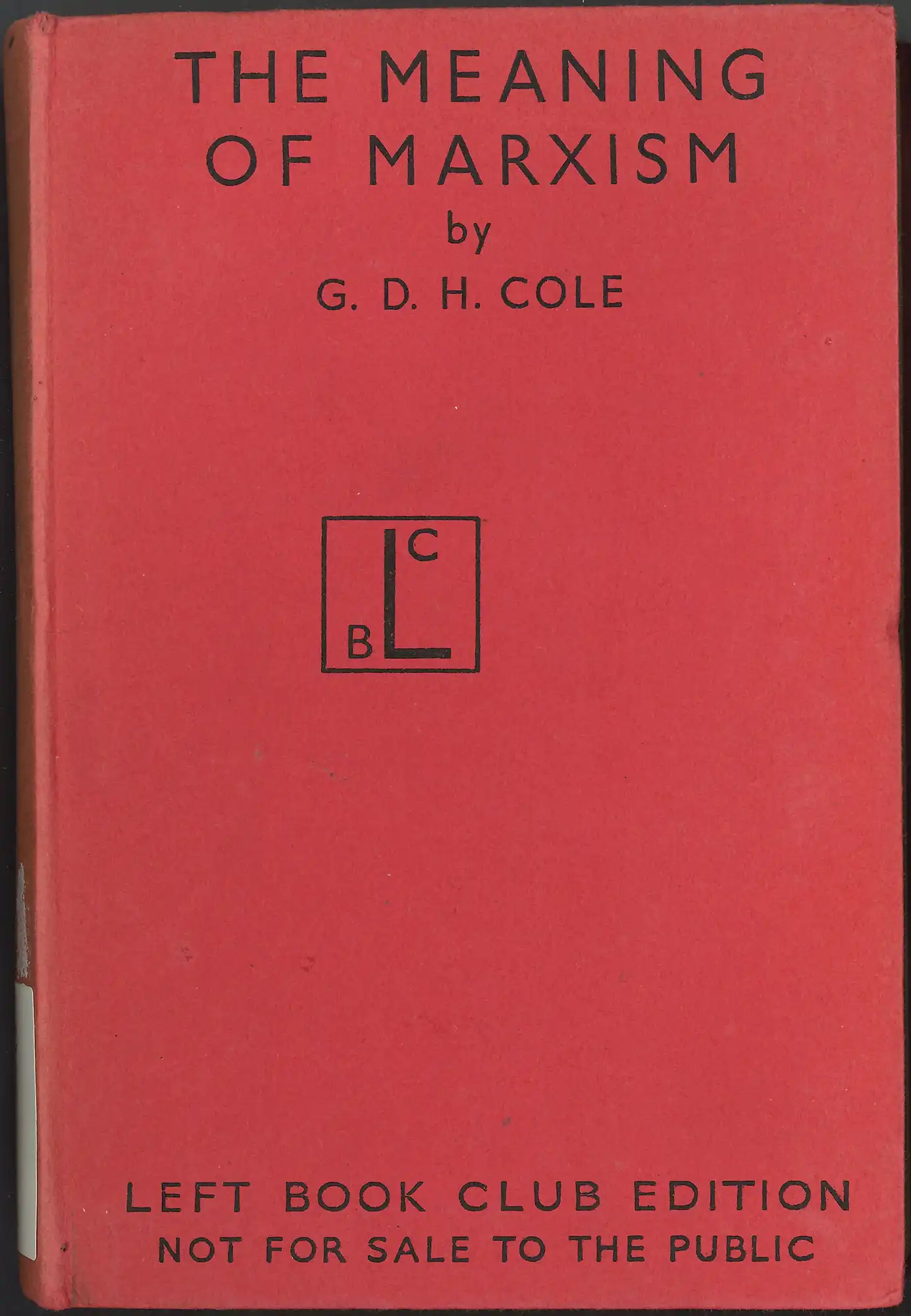
G. D. H. Cole, The meaning of Marxism. (1948) LBC 335.4 COL
The Meaning of Marxism was the final book published by the Left Book Club, fittingly by G. D. H. Cole who was the Club’s most selected author, having written eight of its titles. The Meaning of Marxism is a rewritten version of his 1934 book, What Marx Really Meant, published by Knopf. These books attempted to re-evaluate and update Marx’s thought in the light of the historical development of capitalism since his death. Cole was a proponent of ‘Guild Socialism’, a decentralised form of socialism, involving workers control of production and participatory forms of democratic community control at a localised level. An extremely prolific writer, Cole, along with his wife, Margaret, also co-authored 29 popular detective novels.







